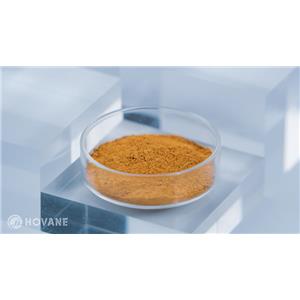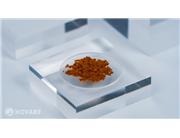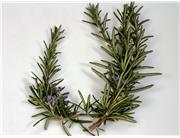Overview:
Paeonia lactiflora, commonly known as Chinese peony or white peony, is a plant species native to East Asia, renowned for its large, fragrant flowers and its use in traditional medicine. The extract derived from this plant, particularly its root, has been utilized in various medicinal and cosmetic applications for centuries.
One of the key active compounds found in Paeonia lactiflora extract is Paeoniflorin, a monoterpene glycoside that is thought to contribute significantly to the plant's therapeutic properties. Paeoniflorin has been extensively studied for its pharmacological effects, which include anti-inflammatory, immunoregulatory, neuroprotective, and cardio-protective actions1, 2, 3.
Beyond its medicinal uses, Paeonia lactiflora extract, enriched with Paeoniflorin, is also valued in the cosmetic industry. Its anti-inflammatory and skin-protective properties make it a sought-after ingredient in skincare products, where it's used to soothe, hydrate, and improve skin health.
Depending on your need, Hovane is able to supply Paeonia lactiflora extract with standardization of Paeoniflorin concentration from 10% - 80%.
For more information, please contact us at info@hovane.com.
Product Details:
| Product Name | Paeonia lactiflora Extract |
| Botanical Origin | Paeonia lactiflora |
| Plant Part Used | Root |
| Standardization | 10% - 30% Paeoniflorin |
| Form | Powder |
| Color | Brown |
| Storage | Keep in cool, dry, and dark place, sealed |
| Shelf Life | 2 years when stored properly |
| Packaging | 1kg – food grade plastic bag 5kg – food grade plastic bag in cardboard box 25kg – food grade plastic bag in fiber drum |
Disclaimer: This product is not intended to diagnose, treat, cure, or prevent any disease. The statements regarding Paeonia lactiflora Extract and Paeoniflorin have not been evaluated by any regulatory agency.
1. Zhang L, Wei W. Anti-inflammatory and immunoregulatory effects of paeoniflorin and total glucosides of paeony. Pharmacol Ther. 2020 Mar;207:107452. doi: 10.1016/j.pharmthera.2019.107452. Epub 2019 Dec 10. PMID: 31836457.
2. Zhang XX, Zuo JQ, Wang YT, Duan HY, Yuan JH, Hu YH. Paeoniflorin in Paeoniaceae: Distribution, influencing factors, and biosynthesis. Front Plant Sci. 2022 Sep 2;13:980854. doi: 10.3389/fpls.2022.980854. PMID: 36119574; PMCID: PMC9478390.
3. Li X, Sun C, Zhang J, Hu L, Yu Z, Zhang X, Wang Z, Chen J, Wu M, Liu L. Protective effects of paeoniflorin on cardiovascular diseases: A pharmacological and mechanistic overview. Front Pharmacol. 2023 May 30;14:1122969. doi: 10.3389/fphar.2023.1122969. PMID: 37324475; PMCID: PMC10267833.



 China
China

